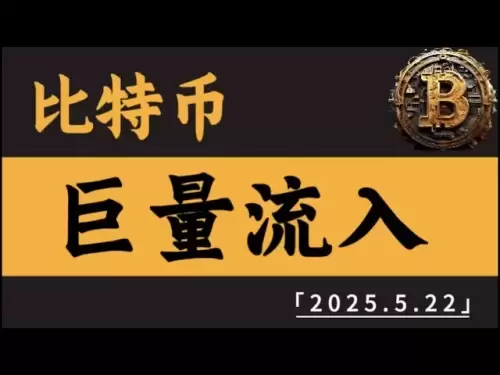-
 Bitcoin
Bitcoin $107,850.7366
2.22% -
 Ethereum
Ethereum $2,598.5357
2.12% -
 Tether USDt
Tether USDt $1.0003
0.01% -
 XRP
XRP $2.3798
0.50% -
 BNB
BNB $660.8033
1.55% -
 Solana
Solana $171.1516
1.60% -
 USDC
USDC $0.9999
0.01% -
 Dogecoin
Dogecoin $0.2320
3.08% -
 Cardano
Cardano $0.7645
3.48% -
 TRON
TRON $0.2722
0.11% -
 Sui
Sui $3.9057
0.86% -
 Chainlink
Chainlink $16.0402
-0.54% -
 Avalanche
Avalanche $22.9008
1.86% -
 Stellar
Stellar $0.2915
2.23% -
 Hyperliquid
Hyperliquid $26.5178
0.08% -
 Shiba Inu
Shiba Inu $0.0...01483
1.64% -
 Hedera
Hedera $0.1979
0.74% -
 UNUS SED LEO
UNUS SED LEO $8.8107
1.19% -
 Bitcoin Cash
Bitcoin Cash $400.5070
1.83% -
 Toncoin
Toncoin $3.0872
1.51% -
 Polkadot
Polkadot $4.7555
2.60% -
 Litecoin
Litecoin $95.9910
-1.18% -
 Monero
Monero $364.9377
4.51% -
 Bitget Token
Bitget Token $5.2016
0.50% -
 Pi
Pi $0.8157
10.84% -
 Pepe
Pepe $0.0...01394
4.94% -
 Dai
Dai $1.0000
0.01% -
 Ethena USDe
Ethena USDe $1.0007
0.03% -
 Uniswap
Uniswap $6.4642
7.59% -
 Aave
Aave $261.0354
-2.44%
What are the best practices for password management strategies for wallet backups?
Secure your crypto with unique, strong passwords for each wallet, using a reputable password manager (excluding seed phrases). Store your seed phrase offline, utilize MFA, and regularly update passwords for optimal protection.
Mar 01, 2025 at 04:42 am
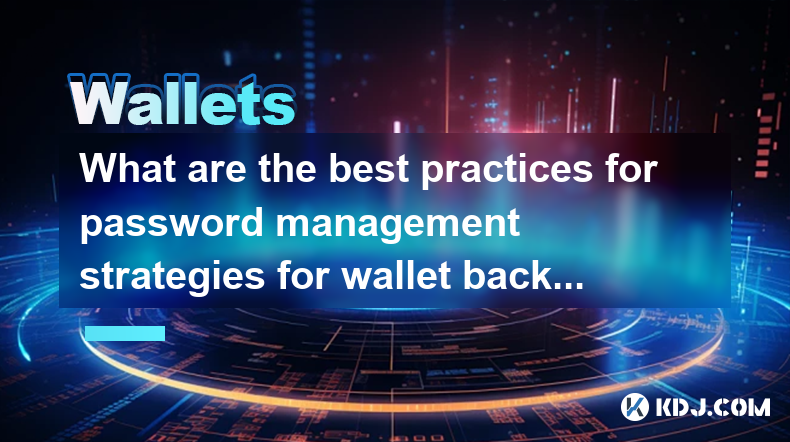
Key Points:
- Importance of Strong, Unique Passwords: Using strong, unique passwords for each wallet is crucial to prevent unauthorized access. Avoid reusing passwords across different platforms.
- Hardware Security Modules (HSMs): Consider using HSMs for enhanced security, especially for large amounts of cryptocurrency. These devices offer offline key storage.
- Seed Phrase Security: The seed phrase is paramount. Never share it with anyone, and store it securely offline using multiple methods.
- Password Managers: Utilize reputable password managers to generate and securely store complex passwords, but choose a manager that doesn't store your seed phrase.
- Regular Password Updates: Regularly change your passwords to mitigate the risk of compromise. This should be done consistently and not only after a security incident.
- Multi-Factor Authentication (MFA): Enable MFA whenever possible for added security. This adds an extra layer of protection beyond just a password.
What are the best practices for password management strategies for wallet backups?
Protecting your cryptocurrency requires robust password management for both your wallets and their backups. Neglecting this can lead to irreversible loss of funds. A well-structured strategy is paramount for maintaining the security of your digital assets.
The foundation of strong password management lies in choosing strong, unique passwords. A strong password incorporates uppercase and lowercase letters, numbers, and symbols, making it significantly harder to crack through brute-force attacks. Each wallet should have its own distinct password; never reuse passwords across multiple platforms.
To further enhance security, consider using a password manager. Reputable password managers can generate complex passwords and store them securely, easing the burden of remembering numerous unique credentials. However, it is crucial to choose a password manager that does not store your seed phrases. The password manager should only store wallet passwords, not the keys to your crypto.
Hardware Security Modules (HSMs) represent another layer of protection, especially beneficial for users managing significant cryptocurrency holdings. HSMs provide a secure, offline environment for storing your private keys, minimizing the risk of online attacks. They offer a significant upgrade in security compared to software-based solutions.
Your seed phrase is the ultimate key to your cryptocurrency. It's crucial to treat it with the utmost care. Never share your seed phrase with anyone, under any circumstances. Implement multiple methods for storing it offline. This might involve writing it down on multiple pieces of paper, storing them in separate, secure locations, or using a metal plate for added durability. Consider splitting the phrase across different storage methods to mitigate the risk of total loss.
Regular password updates are vital. Changing your passwords periodically significantly reduces the window of vulnerability. While the exact frequency depends on individual risk tolerance, aiming for a change every three months or so is a reasonable approach. Remember to update passwords for all aspects of your crypto security, including exchange accounts and wallet software.
Multi-Factor Authentication (MFA) is a powerful tool that adds an extra layer of security. Enabling MFA wherever possible is highly recommended. This could involve using authenticator apps, security keys, or email verification in addition to your password. The more layers of authentication you have, the harder it is for attackers to gain access to your accounts.
Never store your seed phrase or passwords digitally on your computer or phone unless it's within a properly secured hardware wallet. Cloud storage services, while convenient, present significant security risks. Always prioritize offline, physical security for your backup information.
Common Questions:
Q: What happens if I lose my seed phrase?
A: If you lose your seed phrase, you lose access to the cryptocurrency associated with that wallet. There is no recovery mechanism for lost seed phrases. This underscores the importance of secure storage and backups.
Q: Are password managers safe for storing cryptocurrency wallet passwords?
A: Password managers can be a valuable tool for managing complex passwords, but ensure the manager you select does not store your seed phrase. The risk of compromising your seed phrase outweighs the convenience of storing it with a password manager.
Q: How often should I change my wallet passwords?
A: While there's no single definitive answer, changing your passwords every three months is a good starting point. Consider increasing the frequency if you suspect a security breach or if you're managing substantial cryptocurrency holdings.
Q: Is using a hardware wallet sufficient for secure password management?
A: A hardware wallet enhances security significantly, but it's not a complete solution. You still need strong passwords for accessing the hardware wallet itself and for associated accounts like exchanges.
Q: Can I use the same password for multiple cryptocurrency wallets?
A: Absolutely not. Using the same password across multiple wallets is extremely risky. If one wallet is compromised, all others using the same password are vulnerable.
Q: What are the risks of storing my seed phrase online?
A: Storing your seed phrase online exposes it to a wide range of threats, including hacking, malware, and phishing attacks. This significantly increases the risk of losing your cryptocurrency.
Q: What if I suspect my wallet has been compromised?
A: If you suspect a compromise, immediately change your passwords, enable MFA if not already enabled, and review your transaction history for unauthorized activity. Consider contacting the relevant cryptocurrency exchange or wallet provider for assistance. Also, monitor your credit report for any unusual activity.
Disclaimer:info@kdj.com
The information provided is not trading advice. kdj.com does not assume any responsibility for any investments made based on the information provided in this article. Cryptocurrencies are highly volatile and it is highly recommended that you invest with caution after thorough research!
If you believe that the content used on this website infringes your copyright, please contact us immediately (info@kdj.com) and we will delete it promptly.
- Unilabs (UNIL) May Become the Next Meme Coin Market Cap Leader, Dethroning Dogecoin (DOGE)
- 2025-05-21 14:55:14
- SPX6900 has shown an impressive surge in recent weeks, particularly throughout May, recording gains of over 70%.
- 2025-05-21 14:55:14
- Trump to Host Exclusive Dinner for the Top 220 Holders of His Official Memecoin
- 2025-05-21 14:50:13
- DeFi Technologies Expands Its Operations with a Strategic Entry into the RWA Sector
- 2025-05-21 14:50:13
- Upbit Listing Sends MANTRA (OM) Token's Price Soaring
- 2025-05-21 14:45:13
- The Grass Crypto Price Has Rebounded in the Past Few Weeks as Investors Remain Optimistic About Its Future and Staking Rewards
- 2025-05-21 14:45:13
Related knowledge

How to choose an EGLD wallet? Which is safer, a cold wallet or a hot wallet?
May 21,2025 at 02:42pm
Choosing the right wallet for your EGLD (Elrond) tokens is crucial for ensuring the security and ease of management of your digital assets. EGLD, the native token of the Elrond network, supports various types of wallets, each offering different levels of security and functionality. In this article, we'll explore the key factors to consider when selectin...
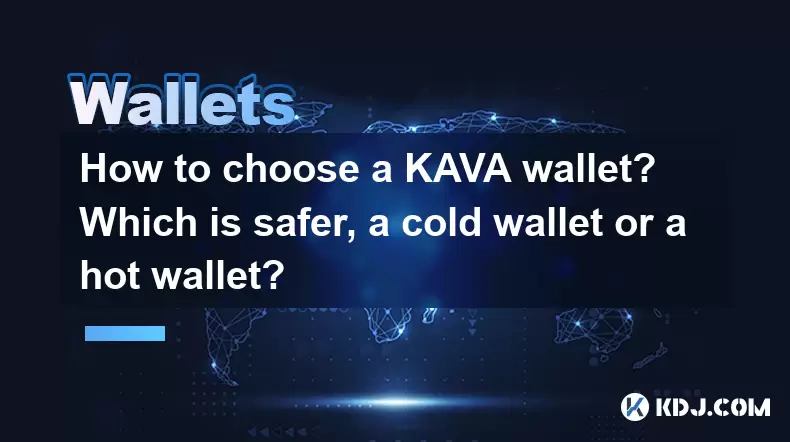
How to choose a KAVA wallet? Which is safer, a cold wallet or a hot wallet?
May 21,2025 at 08:50am
Choosing the right wallet for your KAVA tokens is crucial for the security and management of your cryptocurrency assets. KAVA, being a popular cryptocurrency, supports various types of wallets, each with its own set of features and security levels. This article will guide you through the process of selecting a KAVA wallet and explore the safety differen...
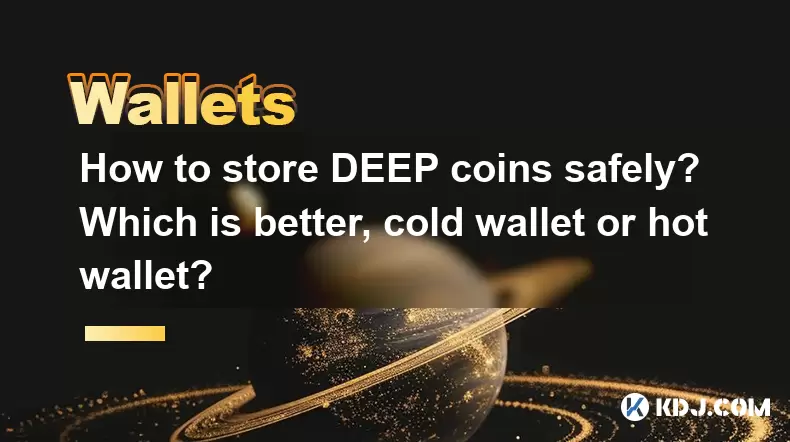
How to store DEEP coins safely? Which is better, cold wallet or hot wallet?
May 21,2025 at 01:49am
Storing DEEP coins safely is a critical concern for any cryptocurrency holder. DEEP coins, like other cryptocurrencies, are digital assets that require secure storage to protect them from theft and loss. There are two primary types of wallets for storing DEEP coins: cold wallets and hot wallets. Each has its own set of advantages and disadvantages, and ...
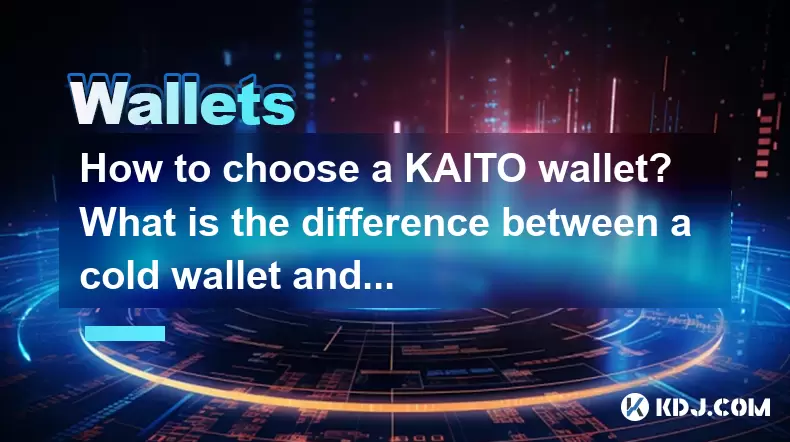
How to choose a KAITO wallet? What is the difference between a cold wallet and a hot wallet?
May 21,2025 at 03:35pm
Choosing the right KAITO wallet is crucial for managing your cryptocurrencies effectively. With a plethora of options available, it's important to understand the key factors that should influence your decision. In this article, we will explore how to choose a KAITO wallet and delve into the fundamental differences between cold and hot wallets. Understan...
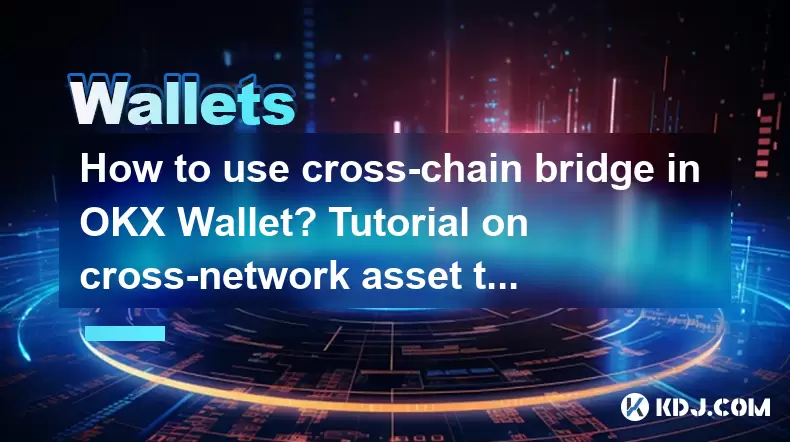
How to use cross-chain bridge in OKX Wallet? Tutorial on cross-network asset transfer
May 19,2025 at 01:35am
The OKX Wallet offers a robust solution for users looking to transfer assets across different blockchain networks through its cross-chain bridge feature. This functionality allows users to move their cryptocurrencies from one blockchain to another seamlessly, enhancing the flexibility and utility of their digital assets. In this tutorial, we will walk t...
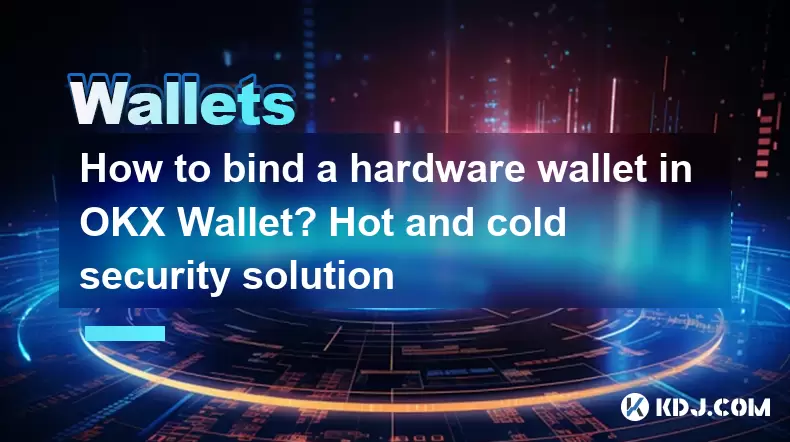
How to bind a hardware wallet in OKX Wallet? Hot and cold security solution
May 17,2025 at 07:14pm
Binding a hardware wallet to your OKX Wallet provides an additional layer of security, combining the convenience of a hot wallet with the robust security of a cold wallet. This process ensures that your private keys remain offline and are protected against online threats. Here’s a detailed guide on how to bind a hardware wallet in OKX Wallet, focusing o...

How to choose an EGLD wallet? Which is safer, a cold wallet or a hot wallet?
May 21,2025 at 02:42pm
Choosing the right wallet for your EGLD (Elrond) tokens is crucial for ensuring the security and ease of management of your digital assets. EGLD, the native token of the Elrond network, supports various types of wallets, each offering different levels of security and functionality. In this article, we'll explore the key factors to consider when selectin...

How to choose a KAVA wallet? Which is safer, a cold wallet or a hot wallet?
May 21,2025 at 08:50am
Choosing the right wallet for your KAVA tokens is crucial for the security and management of your cryptocurrency assets. KAVA, being a popular cryptocurrency, supports various types of wallets, each with its own set of features and security levels. This article will guide you through the process of selecting a KAVA wallet and explore the safety differen...

How to store DEEP coins safely? Which is better, cold wallet or hot wallet?
May 21,2025 at 01:49am
Storing DEEP coins safely is a critical concern for any cryptocurrency holder. DEEP coins, like other cryptocurrencies, are digital assets that require secure storage to protect them from theft and loss. There are two primary types of wallets for storing DEEP coins: cold wallets and hot wallets. Each has its own set of advantages and disadvantages, and ...

How to choose a KAITO wallet? What is the difference between a cold wallet and a hot wallet?
May 21,2025 at 03:35pm
Choosing the right KAITO wallet is crucial for managing your cryptocurrencies effectively. With a plethora of options available, it's important to understand the key factors that should influence your decision. In this article, we will explore how to choose a KAITO wallet and delve into the fundamental differences between cold and hot wallets. Understan...

How to use cross-chain bridge in OKX Wallet? Tutorial on cross-network asset transfer
May 19,2025 at 01:35am
The OKX Wallet offers a robust solution for users looking to transfer assets across different blockchain networks through its cross-chain bridge feature. This functionality allows users to move their cryptocurrencies from one blockchain to another seamlessly, enhancing the flexibility and utility of their digital assets. In this tutorial, we will walk t...

How to bind a hardware wallet in OKX Wallet? Hot and cold security solution
May 17,2025 at 07:14pm
Binding a hardware wallet to your OKX Wallet provides an additional layer of security, combining the convenience of a hot wallet with the robust security of a cold wallet. This process ensures that your private keys remain offline and are protected against online threats. Here’s a detailed guide on how to bind a hardware wallet in OKX Wallet, focusing o...
See all articles






















